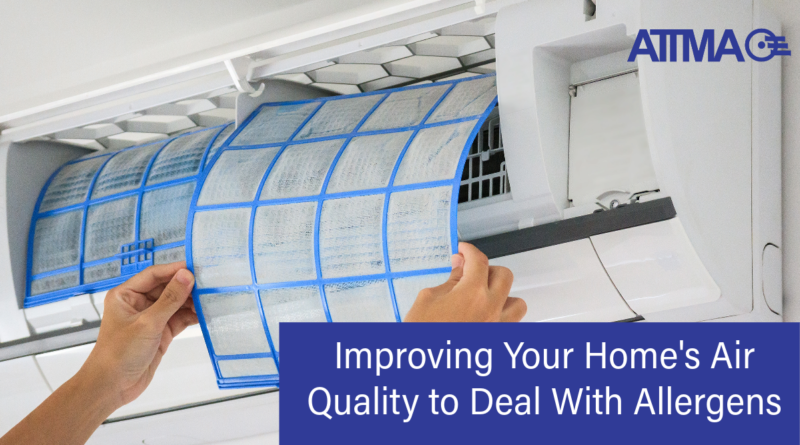While the UK experienced a relatively poor summer last year, many individuals eagerly anticipate the warmth of summer days. However, for a significant portion of the population, the arrival of summer brings with it the inconvenience of sneezing, sniffles, and heightened sensitivity to seasonal allergies, which often compel them to remain indoors.
Whilst this may seem the obvious choice, your home may not be as allergen-safe as once first thought. Some of the allergens are making people ill and are in the home. The US Environmental Protectional Agency estimates that people spend up to 90 per cent of their time indoors which means a buildings air quality is vital to ensure proper health.
However there are steps that can be taken to improve your homes air quality.
- Properly Seal Air Leaks Throughout Your Home
Air Leaks is the first way to control airflow in any building. There are a surprising number of ways air can leak into homes, including gaps, cracks and holes that are found anywhere in the home. Closing these leaks minimize allergens from entering the home, but can help save the homeowner on their energy bills.
- An Energy Audit Can Offer Greater Insight
An energy audit can help improve an homeowners air quality. An audit can provide an in-speth analysis of the home and should do a blower door test to determine how your home is naturally ventilating. This would then be able to provide actionable steps to improve the homes ventilation if there is too much air leakage.
- Regularly Check and Replace Your Air Filter
If the home has an air conditioning unit, then you’ll need to check and replace your filters. It’s likely the air conditioning unit has been working hard to catch dust and other allergens from the air. These, overtime, get caught in the air filter and can overload it.
Improving the homes airflow may help people who suffer from allergies feel better all year round.
An ATTMA member can provide their air tightness testing services to assist with some of the above steps.





